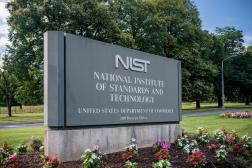NSF pledges $8M to new regional innovation hubs

The National Science Foundation plans to expand its innovation ecosystem by funding new hubs of what it calls the Innovation Corps — a set of training programs and other initiatives to rapidly translate progress made in labs to the commercial world.
NSF is offering up to $8 million in cooperative agreement awards to researchers to form new I-Corps nodes, which are central hubs meant to “support regional needs for innovation education, infrastructure, and research” of I-Corps teams, according to a solicitation from the science and engineering research agency. Typically these nodes are based around academic or nonprofit research entities and connect to form NSF’s National Innovation Network — essentially a national innovation ecosystem for advancing practical and impactful research discoveries. Some of the first nodes were launched at Stanford University, Georgia Tech and the University of Michigan. Each of those nodes is made up of other smaller I-Corps sites that consists of actual teams performing the research.
The awarded nodes will be responsible for training at least five I-Corps teams per year and provide them an infrastructure for quickly moving their specialized ideas to market, but with long-term feasibility in mind.
Serial entrepreneur Steve Blank, who helped NSF create the program based on one of his classes at Stanford that was training NSF scientists to move forward with their NSF-funded research in an entrepreneurial way, called the I-Corps one of the government’s “most audacious experiments in entrepreneurship since World War II.”
The relatively small capital investments often seed into larger, multiplied investments down the road when participants build startups around their experiences in the program. As of August 2015, NSF said more than 1,600 people had completed the program and formed 261 resulting startups that raised more than $49 million in outside funding to promote the quicker movement of innovation to the commercial market. Successful I-Corps teams have gone on to build businesses in a range of industries — from the sale of graphene film to the development of an open-source cloud platform.
“The I-Corps model has spread because of the people from all fields of science and engineering who have gone through the training and have been truly transformed by the experience,” NSF Director France Córdova said in a statement. “The power of these success stories compels more people to bring I-Corps to their communities.”
Last August, NSF also announced a series of partnerships with federal agencies, like the National Security Agency and the departments of Defense and Homeland Security, and nonprofits to bolster innovation in particular areas of need, such as intelligence, small business, agriculture and defense.
NSF is accepting proposals for new I-Corps nodes until May 10, with a letter of intent required by March 10. The agency is also open to renewing funding for nodes that have already received awards as part of the program prior.
NSF was unable to comment on the I-Corps nodes solicitation prior to publication.






